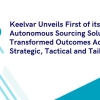Recently I attended the Brexit & Global Expansion Summit in London, an event that brought together politicians, businesses and investors for discussions on the investment implications of Britain’s tectonic decision to leave the EU.
One of the sectors we discussed in depth was offshoring and outsourcing. No one has a crystal ball, but what is clear is that Brexit has challenged so many fundamental economic assumptions about the value proposition for a British business operating a customer service centre in the UK.
In short, long-held assumptions have been smashed. Sterling is no longer quite so strong – making foreign customer service centres more expensive to operate. On the flip side, migration controls are likely to be stricter – potentially pushing up the cost of employing labour in the UK. And, far more importantly, there is still absolutely no clarity on whether Britain will remain in the single market and what impact this may have on trade barriers and costs.
It would therefore be of no surprise to me if many British businesses are considering whether they are better off staying in country or re-locating their customer service centres abroad. After all, the offshoring trend isn’t new and there are plenty of English -countries beyond Britain.
South Africa is just one of these countries looking to highlight the benefits of operating offshore during this period of flux. We have a large and well-established business process outsourcing (BPO) sector, encompassing everything from voice to legal and financial services. Domestically, the sector employs approximately 200,000 people; in addition, we employ some 27,000 people who are dedicated to serving international customers for brands such as Lufthansa, Shell and Amazon.
The UK is actually the largest source of foreign business for the South African BPO sector, with 59.9% of the market share. There are now a variety of British brands, including major telcos, retailers, financial service providers and utilities companies operating their BPO centres in South Africa.
So why do these British brands operate in South Africa? I recently spoke to Pumela Salela, from Brand South Africa, about this. She explained the top reason was simple: language and cultural affinity. With approximately 410,000 graduates with English language skills from schools and universities each year entering the work environment South Africa is well positioned to service English-speaking locations on a large scale.
Additionally, South Africa has deep domain skills – particularly in financial and legal services – and brands can expect to benefit from significant cost savings by moving their BPO centres to the country. For example, most people don’t realise that South Africa has more actuarial scientists than India, another country with a large English-speaking population which competes in the offshoring space.
Whatever the relative benefits of one offshoring location versus another two things are clear. First, modern businesses are increasingly embracing the outsourcing economy, and the processes that can be outsourced are growing significantly with the advent of new technologies. This isn’t going to change – and this presents opportunities for all offshoring locations with large English speaking populations, including Poland, the Philippines and India.
Second, Brexit has challenged old certainties for British companies operating BPO centres in the UK. The economic maths of old is being challenged. Simply put, it might now make more business sense for that small call centre of 50 people in Essex to move to Durban. This presents opportunities for those countries that can highlight the benefits of moving BPO operations to their country, among them South Africa.
About the Author Gareth Pritchard is the CEO of BPESA Western Cape. He has been involved in the BPO industry since 1998 working in Europe, India and South Africa. As Managing Director of Lufthansa Process Management GmbH the company was responsible for the transfer of travel-related processes offshore to South Africa in 1998, the first BPO investment into the country. The company was subsequently bought in 2007 by Teleperformance, the world’s largest contact centres outsourcer. Pritchard was the Managing Director. In 2008 he became involved with BPESA, the industry body for the BPO sector in South Africa, taking up a position on the board. In 2010 he took on the role of BPESA Western Cape CEO and in 2012 took on the joint role of interim national CEO, a role he held until March 2015. He is primarily responsible for engaging with the international community to explain the South African value proposition and ensuring that potential investors have the right information to make informed decisions. Over 10,000 jobs have been created since 2010.








